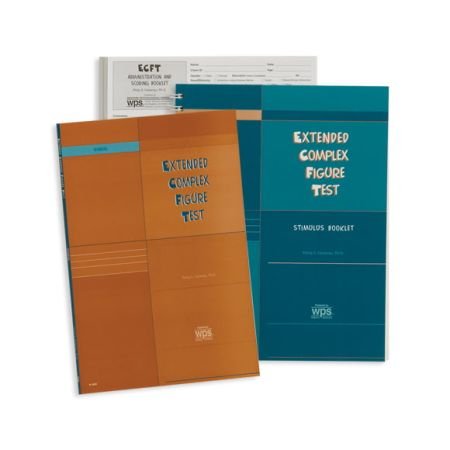
Extended Complex Figure Test ecft
For: Improves the diagnostic sensitivity of the Complex Figure Test by adding Recognition and Matching Trials
Reading Level: Ages 6 years and over
Format: Paper-and-Pencil
Length: 15 to 20 minutes, with a delay of 30 minutes; Short Form, 10 to 15 minutes
Scoring: Hand Scored
Author
Philip Fastenau, Ph.D.
Description
The Extended Complex Figure Test (ECFT) retains the strengths and overcomes the limitations of the Rey-Osterrieth Complex Figure Test (CFT), a standard measure of perceptual organisation and visual memory in brain-injured individuals.
By adding Recognition and Matching Trials to the CFT’s design copying task, the ECFT allows clinicians to distinguish perceptual operations from constructional skills, and encoding processes from retrieval processes. This gives the ECFT greater diagnostic sensitivity.
The ECFT is useful not only in evaluating the effects of head injury, stroke, seizure, various medical conditions, and exposure to neurotoxins, but also in differentiating depression from dementia; distinguishing dementia-related memory deficits from normal, age-related memory lapses; and identifying aspects of memory functioning relevant to rehabilitation.
Like the CFT, the ECFT asks the patient to copy a complex geometric figure onto a blank sheet of paper and then assesses his or her immediate and delayed recall of the figure. Unlike the CFT, the ECFT then adds a forced-choice recognition task (preserving orientation) and a stimulus matching task using elements from the original figure. Testing time is 15 to 20 minutes, with a delay interval of 30 minutes.
These procedures yield 11 scores:
- Design Copy Total Score
- Recognition Total Score
- Immediate Recall
- Recognition Global
- Delayed Recall
- Recognition Detail
- Matching Total Score
- Recognition Left Detail
- Matching Left Detail
- Recognition Right Detail
- Matching Right Detail
Age-stratified norms are provided, based on a sample of 239 men and women (aged 19 to 85 years) and 76 children (aged 6 to 18 years).
A short version of the ECFT, requiring no motor skills and just 10 to 15 minutes, provides only the 8 Recognition and Matching scores. This version may be used with patients who have limited motor ability or are easily fatigued.
The original CFT has three main limitations:
- Its reliance on constructional ability may confound interpretations about memory;
- Its failure to take perceptual problems into account can similarly confuse results; and
- Its inability to discriminate between encoding and retrieval may make it difficult to know exactly why patient recall is defective.
The ECFT addresses each of these shortcomings. It adds supplementary measures of visual memory that allow the patient to respond by pointing or speaking. Its Matching Trial allows you to screen for perceptual difficulties. And its inclusion of recognition tasks clarifies the relative contributions of encoding and retrieval processes. Furthermore, the short version insures that the test may be used with people who have limited use of their preferred hand.
NB: Prices are in Australian dollars inclusive of GST. NZ customers need to log in to view ex-GST prices.



